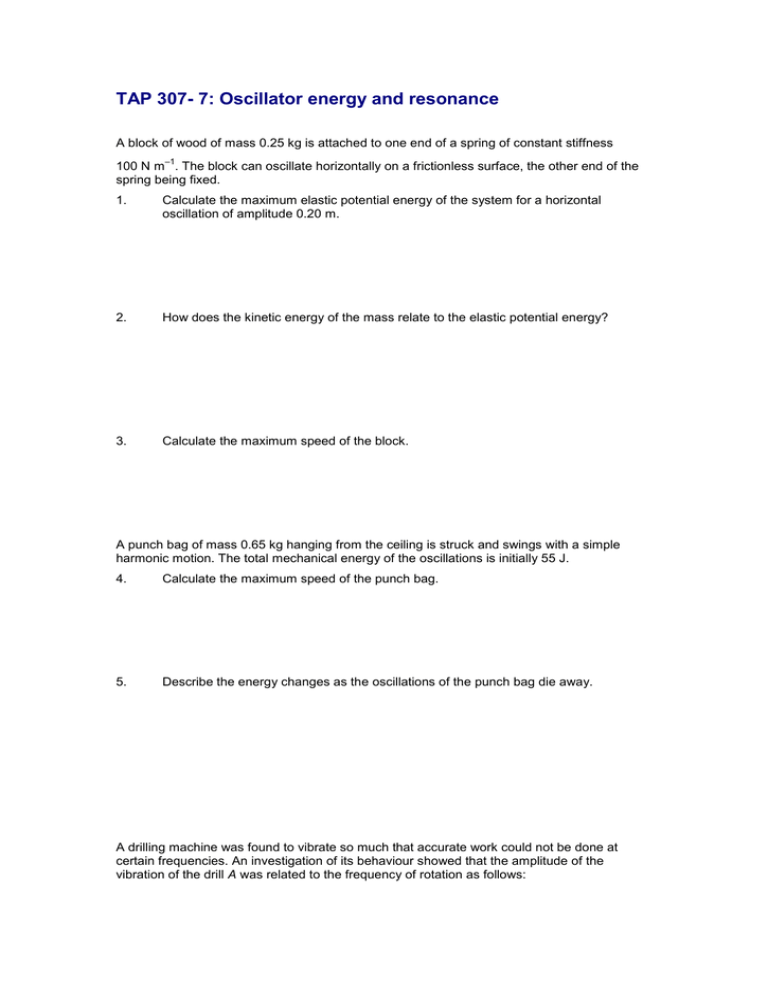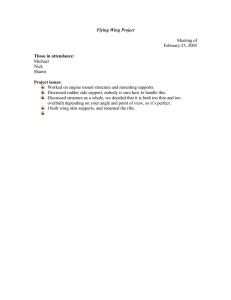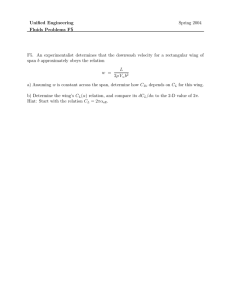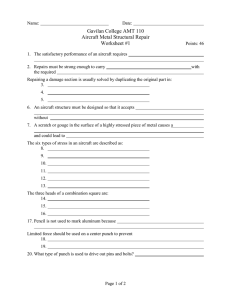Episode 307-7: Oscillator energy and resonance (Word, 59 KB)
advertisement

TAP 307- 7: Oscillator energy and resonance A block of wood of mass 0.25 kg is attached to one end of a spring of constant stiffness –1 100 N m . The block can oscillate horizontally on a frictionless surface, the other end of the spring being fixed. 1. Calculate the maximum elastic potential energy of the system for a horizontal oscillation of amplitude 0.20 m. 2. How does the kinetic energy of the mass relate to the elastic potential energy? 3. Calculate the maximum speed of the block. A punch bag of mass 0.65 kg hanging from the ceiling is struck and swings with a simple harmonic motion. The total mechanical energy of the oscillations is initially 55 J. 4. Calculate the maximum speed of the punch bag. 5. Describe the energy changes as the oscillations of the punch bag die away. A drilling machine was found to vibrate so much that accurate work could not be done at certain frequencies. An investigation of its behaviour showed that the amplitude of the vibration of the drill A was related to the frequency of rotation as follows: A / 10–2 mm f / Hz 0 0 14 5 30 8 44 9 80 10 96 11 24 12 8 13 2 15 3 20 9 25 7 30 4 35 6. Draw a graph of A against f and explain its shape. 7. Why is it advisable to start to drill a hole with the drill rotating at a frequency of between 15 Hz and 20 Hz? A bumble bee could not fly if its wing muscles had to oscillate at the same rate as its wing beat. Biochemistry makes it impossible for muscles to contract and relax as fast as this. However, the bee avoids the problem by having its wing roots embedded in a special block of elastic material. 8. Thinking of the wing as a mass and the block of material as a spring, explain how the bee’s muscle can beat at a frequency less than the wing beat. Practical advice This collection of questions brings together the abstract and everyday, to show the wide range of phenomena covered by resonance, connecting these with the underlying concept. Answers and worked solutions 1. 2. E 1 2 kx2 1 2 100 N m 1 0.20 m 2.0 J 2 The maximum E k will be the same as the maximum elastic E. 3. Ek mv 2 2 v so 2 Ek m 22J 4.0 m s 1. 0.25 kg 4. v 5. 2 Ek m 2 55 J 13 m s 1 0.65 kg Energy is transferred to random thermal motions near the surface of the punch bag, in the supporting cable, and in the surrounding air. The mechanical energy of the punch bag may fall away exponentially. 6 100 90 80 70 60 50 40 30 20 10 0 0 5 10 15 20 f / Hz 25 30 35 Resonance causes the drill to vibrate violently when the rate of rotation of the drill is equal to its natural frequency, around 11 Hz. The second peak occurs at approximately twice the resonant frequency, it is less sharp, possibly due to damping. 7. This is well away from the natural frequency of the drilling machine, so the drill bit will be in its equilibrium position. 8. The muscle action can be at a submultiple of the wing frequency, say f / 4. This would be like pushing a child on a playground swing only every fourth cycle. External reference This activity is taken from Advancing Physics chapter 10, 240S


